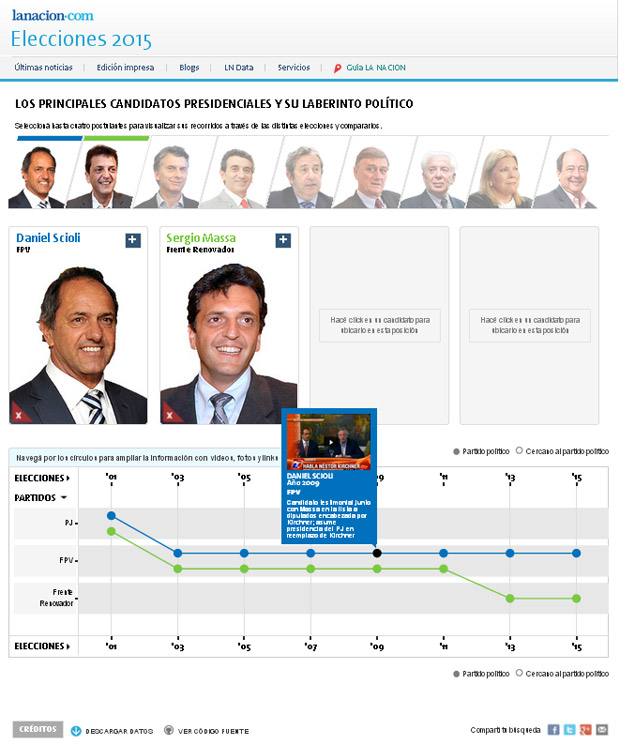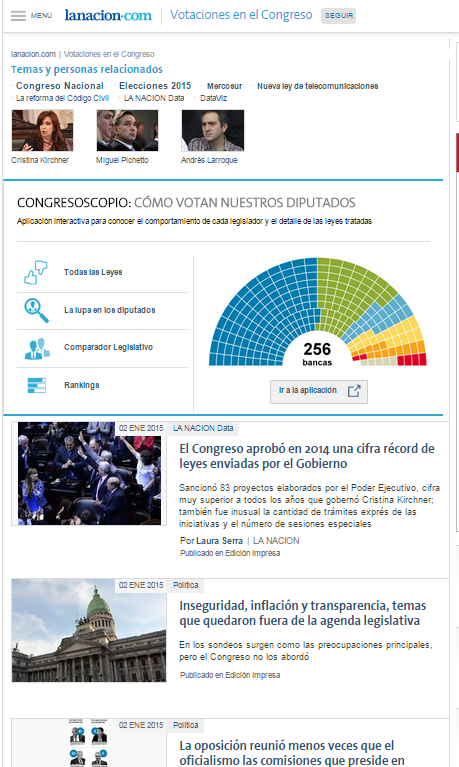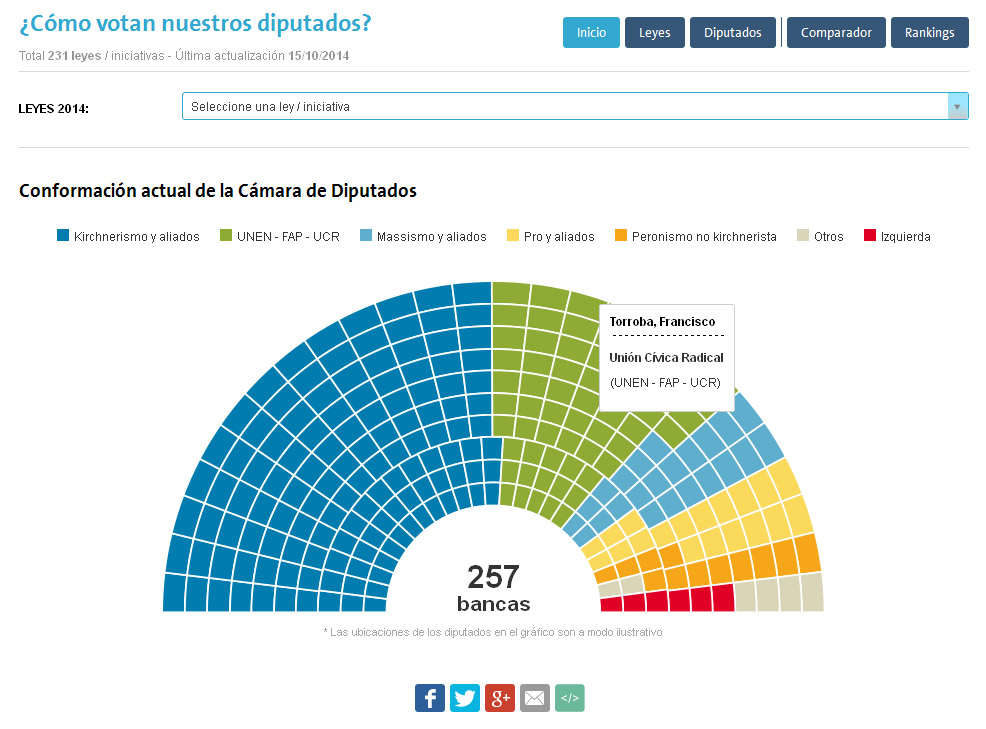 In Argentina, where we don´t have an access to information law yet, LA NACION and other three NGO´s that work towards transparency (Poder Ciudadano, ACIJ and Fundación Directorio Legislativo) worked together to develop the first site concerning the heritage of public servants, making the information accessible to anyone with a computer and an Internet connection.
In Argentina, where we don´t have an access to information law yet, LA NACION and other three NGO´s that work towards transparency (Poder Ciudadano, ACIJ and Fundación Directorio Legislativo) worked together to develop the first site concerning the heritage of public servants, making the information accessible to anyone with a computer and an Internet connection.
The work included more than 30 volunteers manually entering data and generating a structured and searchable dataset from scanned PDFs. The project included all of LA NACION DATA team, using collaborative tools, coordinating cross checking procesess and 6 full day check-a-thons that included the volunteers.
As they assume their public duties, public officials in Argentina, are required to fill out a statement declaring their assets and then they are asked to update that information every year, while they’re in office. Even though the records are public, the information was not easily accessible to ordinary citizens, and of course when asked, it were given in print copies.
Declaraciones Juradas Abiertas was born in a unique political scenario. A new law regulating public officials’ affidavits was passed, which omits asset information of the children and spouses of public officials in future affidavits, reducing the amount of information previously available. The family asset situation is vital to create a chart of the current patrimony of a public servant for an illicit gain investigation. The application, which was launched on Sept. 28 (International Right To Know Day) includes 1540 affidavits from more than 800 public officials (the members of President Cristina Fernández’s cabinet of ministers, legislators and judges, among others). It contains detailed information about their financial assets and properties over the years.
The interactive application that allows users to read a large volume of information and do comparisons, with an easy visual interface, includes the possibility to explore every original PDF document in detail, using DocumentCloud.
After the requests of the statements of assets was made to the Anticorruption Office (OA) and other offices, all the information came in print and in boxes. Each file was around 5/7 pages long.
The priority was given to the affidavits of the most relevant seats of each power and to the candidates for october 2013 legislative elections.
Seguir leyendo →















